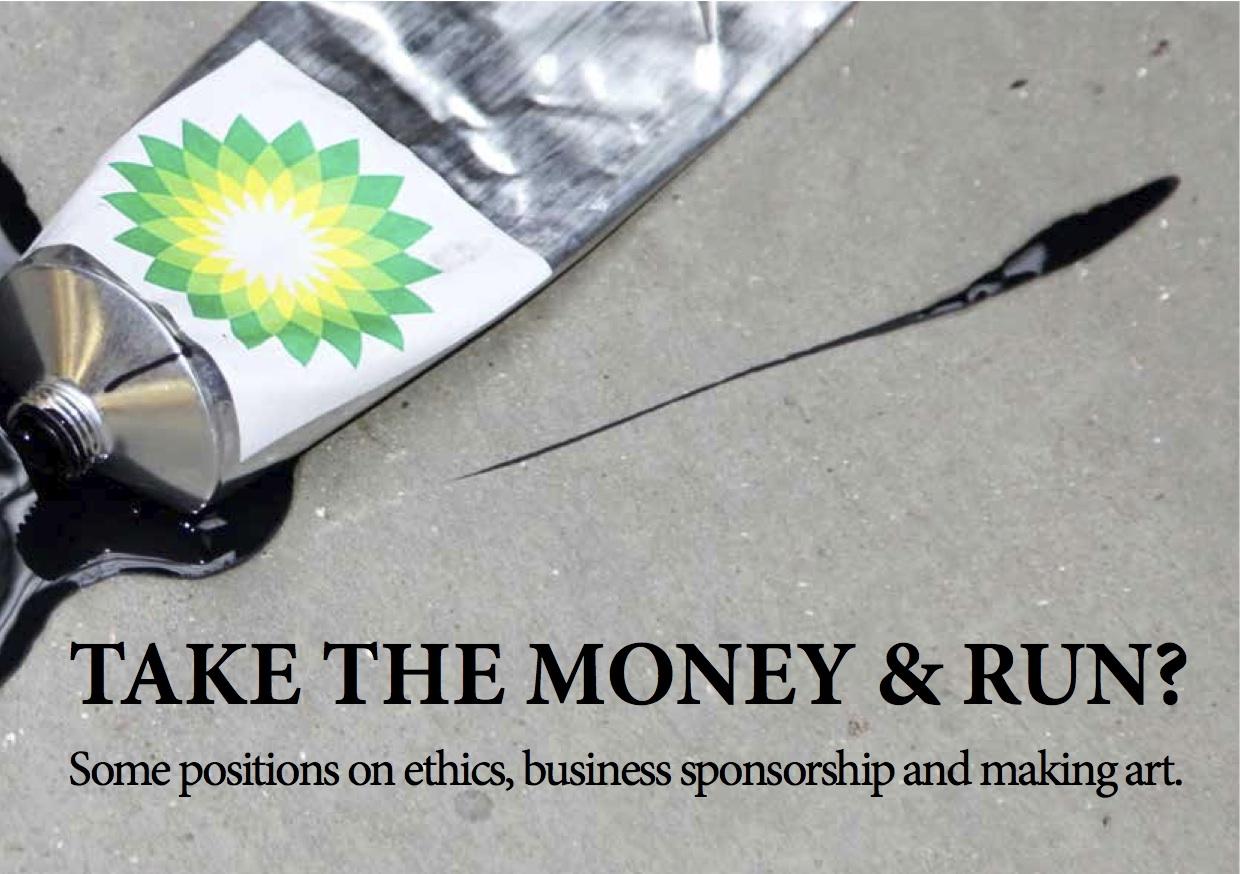
Book review: Take the money and run?
Bethany Rex finds Platform’s guide to the ethics of business sponsorship in the arts provides a good starting point for debate.
It all began during the reign of Roman emperor Augustus; Maecenas supported Virgil financially and received a name-check in the ‘Georgics’ in return. Now, Louis Vuitton sponsors Yayoi Kusama at Tate and receives a collection of ‘iconic’ pieces designed by the artist to sell in a concept store at Selfridges. Taking place against a backdrop of cuts to state funding of the arts, DCMS and ACE’s drive towards increased individual, business and corporate sponsorship of the arts has led some to question the ethics implications of accepting financial support from the private domain.
‘Take the Money & Run?’ is a made up of a selection of thoughtful summaries of key texts relating to this dilemma. Focusing specifically on high-profile sponsors such as BP and Shell and their relationships with blockbuster arts organisations such as Tate, RSC and the National Portrait Gallery, Jane Trowell of arts, social justice and environmental group Platform (it should be noted that Platform work alongside Liberate Tate and Art Not Oil) provides useful context to the problematic role the Galleries, Libraries, Archive and Museums (GLAM) sector plays in lending companies the cultural capital to ‘authenticate’ or ‘clean-up’ their brand.
Featuring analysis of a broad range of texts from the theoretical (Mary Warnock and Mark Wallinger’s graphically bold publication ‘Art for All: Their Policies and Our Culture’), the international (Harry Hillman-Chartrand and Claire McCaughey’s ‘The Arm’s Length Principle and the Arts) to those informed by policy (Arts and Business’ ‘Using Art to Render Authenticity in Business’) this is an excellent starting point for artists looking to deliberate their positions on this problematic issue. For those responsible for fundraising, Julia Rowntree’s guidance will be of particular interest. Her contribution stems directly from her own experience as Development Director for the London International Festival of Theatre (LIFT). Her first-hand experience in creating a model for maintaining the integrity of the artwork, whilst developing open and transparent relationships with sponsors provides an excellent example of best-practice in challenging circumstances.
This is not, however, a neutral guide and, at points, Platform’s staunch opposition to the corporate/cultural relationship is laid on a little too heavily. It is important to recognise the fact that a high profile sponsor is ultimately accountable to their shareholders (for whom profit is the order of the day) and the impact this may have on what values are ultimately prioritised. It is not clear whether the driving force of this guide, and the workshops and events that have been facilitated to disseminate it, is an ethical opposition to accepting money from environmentally questionable companies or the legitimisation of commercial principles implied by sponsorship as a whole.
Taking this guide as a whole, Trowell succeeds in her objective to delve beneath the jargon of corporate sponsorship, to discover the contradictions in BP’s sponsorship of Tate and to encourage artists and arts organisations to do the same. In doing so, she adopts an appropriately critical tone; highlighting the importance of reflective practice when negotiating the relationship between artist, artwork and sponsor. This is an accessible introduction into the issues and debates surrounding ethical sponsorship of the arts and hopefully one that will encourage further public and political discourse on the subject.
Bethany Rex is an MA student at the University of East Anglia where her research interests include the nature of community participation in the UK museums sector.
@bethanyrex
'Take the Money & Run? Some positions on ethics, business sponsorship and making art' is available here online. It is available to purchase in print format here.
Join the Discussion
You must be logged in to post a comment.